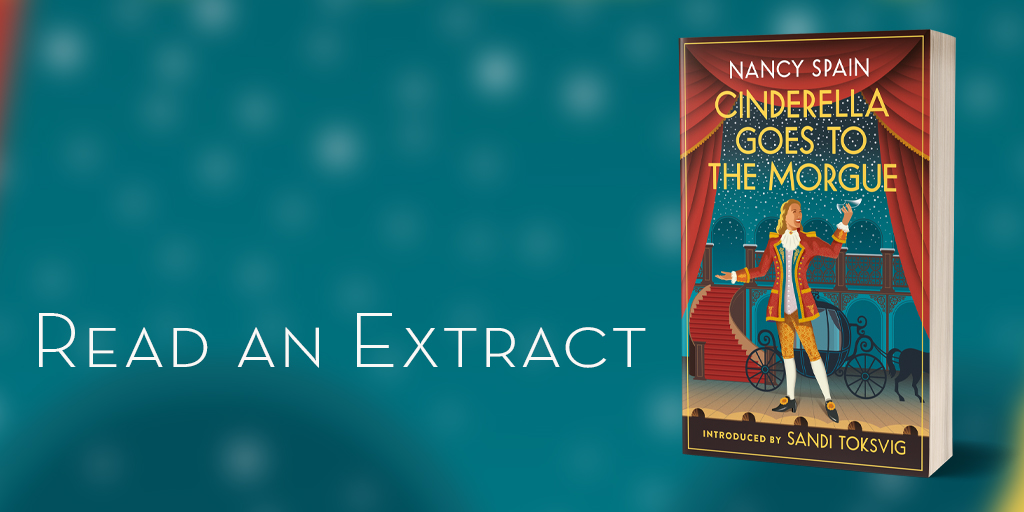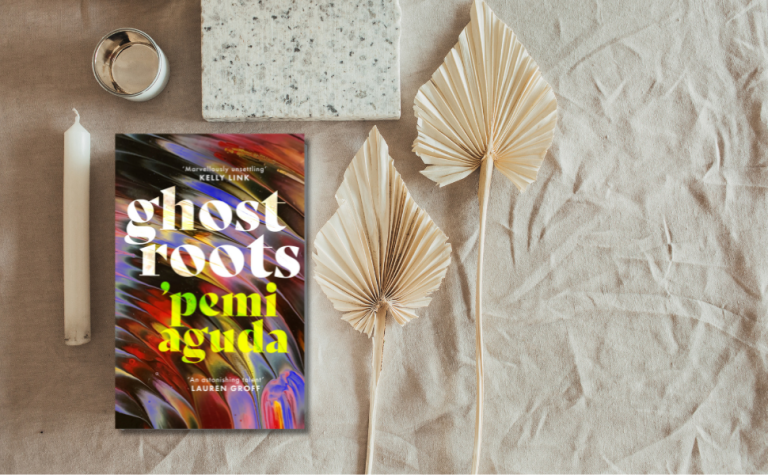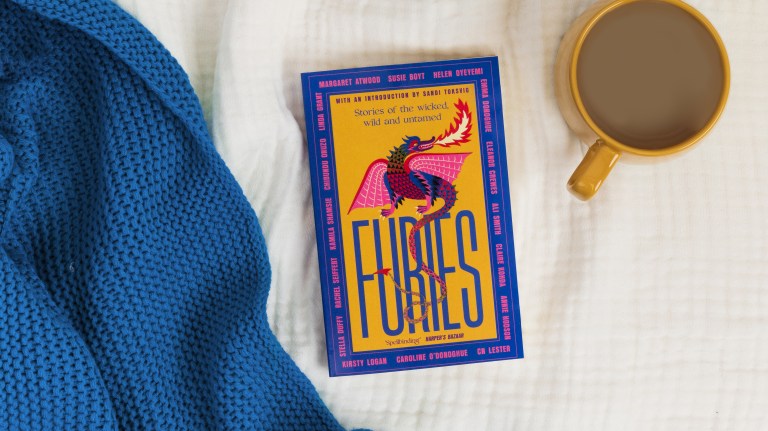Read an extract from Cinderella Goes to the Morgue

I
It was one of those surprising fine late afternoons in December that often follow upon many sad days of wind and rain and fog in Newchester. The winter sun had shone all day and had failed to warm anyone. There was frost in the air, and excitement.
Christmas was only a week away. The red sun slanted below the mist and lengthened the shadows in ‘Atkins Street’. A pleasant street that had curved graciously down towards the River Tame since it was built in 1815. Its present title was a sop to the Lord Mayor of Newchester: a great philanthropist.
There was a theatre in Atkins Street, the Theatre Royal, with a colonnaded portico and bright hoardings that announced the Christmas Pantomime, Cinderella. There were several fine bayfronted houses in Atkins Street. There were solicitors’ offices with brass plates, typewriting agencies, multiple chain stores, oddly housed in fine buildings that had once been high- class city residences. And there was a cab- rank, composed of smart black Austin motor- cars and a solitary growler.
The evening mist, lurking down back lanes in gutters, seemed to rise and hang shimmering in front of the shop windows.
As the daylight failed the electric light in these shops became important. Oranges and lemons, crackers and bowls of glacé cherries, brilliantly jacketed children’s books and festoons of Christmas cards proclaimed the season of the year.
Scarlet was a predominant colour. The oranges glowed like the sun. The glacé cherries glittered like precious stones in their cave. The Christmas cards were, perhaps, more intellectually exciting.
Natasha DuVivien and her friend Miriam Birdseye paused on the pavement to consider a bookshop. Their arms were full of parcels, their faces were flushed with cold and generosity and childish apprehension about Christmas.
‘This,’ said Natasha, in her slow, elegant Russian voice, ‘is the part that I am loving most about Christmas.’
Natasha’s voice was not so obviously Russian that it might be described phonetically by the syllables ‘Boo, boo, boo’. It was, nevertheless, a little odd.
‘You mean the weeks beforehand, dear?’ said Miriam Birdseye absently. She disengaged an unpleasant street child from her shopping- bag. ‘Not to day, thank you,’ she said to it severely. ‘I will not give you a penny for singing a carol. Christmas Eve is the time for carols.’
She turned to Natasha and agreed with her.
‘Yes,’ said Miriam. ‘The weeks before Christmas are fun. But I am not so certain, myself, about Christmas itself.’
These two ladies stared at their reflections in the winking plate- glass window of the high- class firm of Nutson, Mawd and Pander, Stationers and Booksellers, Newchester.
‘I hate book tokens,’ said Miriam suddenly. ‘They spoil everything.’
II
At the same time Johnny DuVivien, Natasha’s ex- husband, sat gloomily in the front row of a non- stop variety theatre in London. His decree absolute had come through that morning.
He was deeply depressed. Even faced by the undeniable fact that Natasha had run away from him he had believed, until the very last moment, that Natasha would contrive something – send him some sign to show that she didn’t want to be divorced.
Natasha was a White Russian and an ex- ballet dancer. This had made her a little unstable and difficult. But God knows Johnny didn’t want a divorce. He adored Natasha. He had only agreed to it to please her. He had no idea how hopelessly lonely it would make him. Oh dear. He wished he was dead. And as for the Theatre (Natasha’s beloved drama), he hated it. It bored him stiff.
He looked vaguely up at the stage.
Capering women and monkey- faced men. All as unnatural as hell. The show dragged on and on and on. Once Johnny had been uncompromisingly intolerant of the Theatre. Now he was trying, pathetically, to recapture some of Natasha’s love of drama. Even this tawdry non- stop revue had something in it for her. It said nothing to him, blast it. And when Natasha could not get enough of this elusive commodity she ran up dramas in her own life. Not to be wondered, really. She was always getting innocently involved in quite appalling muddles . . . Even murders and things. It was all extremely dangerous. Perhaps she liked danger. She was an extremely naughty girl. Oh God, he missed her so . . .
Johnny moved restlessly in his seat. He had paid no attention to the show for at least half an hour. Suddenly he could bear it no longer. Life without Natasha was intolerable.
He must know what she was doing. He sat up straight. He must make one more effort to get her back. On the stage a young lady began to sing ‘People will say we’re in love’ in a sweet, painful soprano. The effect on Johnny was electric.
He covered his eyes with his hand. That tune. The last time he remembered hearing that had been at the first night of Oklahoma . . . with Natasha.
He rushed for the exit, tripping over feet as he went. People looked at him strangely. Let them, damn them.
Five minutes later, back in his hotel with the telephone directory spread in front of him, and a list of Natasha’s friends and acquaintances at his elbow, he began to dial. He began by dialling Miriam Birdseye’s London number.
III
As it so happened Natasha was still reflected in the window ofNutson, Mawd and Pander. She was agreeably decorative, by any standards. She wore conventional tweeds and a pale- blue blouse. A phantom beaver coat swathed them. Her ash brown hair hung to her shoulders. Miriam Birdseye was taller than Natasha and there was a general effect of mink that seemed a little theatrical for the provinces. She had been a revue artist of genius. She was not good- looking. Behind them both the traffic lights flickered from red to green and back over again.
In the dusk (thought Natasha) they looked like brightly lit boiled sweets.
Natasha and Miriam stared in at an idle display of books. They both sighed. They were agreed that, once again, it would have to be book tokens.
‘And,’ pointed out Natasha, ‘this is meaning that we will be having to spend half a crown more. It is always so with book tokens. I have noticed it.’
Suddenly Miriam gave a little cry.
‘I thought I saw someone,’ she said slowly, ‘reflected in the glass . . . Someone I knew . . . ’
Natasha transferred a heavy shopping- bag to her other hand and gazed up and down Atkins Street. There were a great many people, pushing and hurrying and calling out to one another, buying newspapers and even (in extreme cases) carrying turkeys. But there was no one whom Natasha knew. She said so.
‘Not you – me,’ said Miriam in a muddled way. ‘And not walking in the street. In a motor- car. A Rolls Bentley.’
‘Oh,’ said Natasha vaguely, ‘that is quite different. Who have you thought you are seeing?’
‘That bloody man Hampton Court,’ said Miriam slowly and viciously. ‘That horrible ape. I expect I was mistaken.’
Natasha was vague. Her wide, hazel eyes were untroubled. Miriam’s face had twisted with rage, like an expensive jade figure.
‘What is Hampton Court?’ said Natasha.
‘It is a man,’ said Miriam. ‘A bitch of a man. The music- hall artist. You know, dear. The comedian. The man who wrote that filthy autobiography and no one dared to sue him. He said he was warped because his mother dropped him at birth. That man. He was involved in that swindle about a share transfer . . . He’s supposed to have gone into pantomime production this year, like the Littlers. I hate him,’ she ended vehemently. ‘But he is the best Buttons in the business.’
‘Buttons?’ said Natasha, surprised. ‘Business?’
‘Buttons, dear, in Cinderella, dear,’ said Miriam, by now in a furious rage and hissing like a queen cobra. ‘Perhaps it’s one of his pantomimes here. Let’s go and see.’






